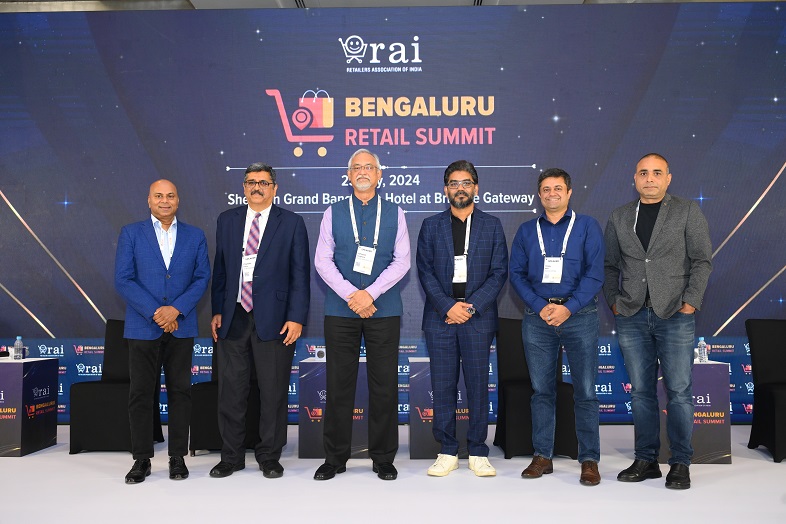Kolkata, 7 Feb.: Birla Corporation Limited reported a consolidated net profit of Rs 109 crore for the December quarter, up 87% sequentially, as the Company managed to ramp up sales and scale back operating expenses. The Company’s EBITDA for the December quarter at Rs 395 crore and cash profit at Rs 298 crore represent a year-on-year growth of 160% and 359%, respectively.
Total cost per ton of cement production for the December quarter at Rs 4,375 represents a decline of 8% year-on-year and 3% sequentially. With several internal cost optimization measures starting to deliver results, Birla Corporation is now among the most efficient cement manufacturers in the country in terms of production cost. The Company’s operating profit margin from cement for the December quarter was 17% and for the nine-month period, 13%.
In the March quarter of the last fiscal year, Birla Corporation had launched Project Shikhar, a multi-pronged drive to improve operating efficiency and optimize costs. It has led to various nuts-and-bolts tweaking, and so far resulted in savings of at least Rs 55 per ton in cement production cost for the quarter.
The Company’s consolidated revenue for the quarter at Rs 2,328 crore represents a 15% growth over last year, as cement dispatches from Mukutban were steadily scaled up and sales of premium products expanded in key markets.
Mukutban continued its scaling-up journey on track and clocked positive EBITDA through each month of the December quarter. This significantly boosted the Company’s profitability. Beating projections, Mukutban crossed the 200,000-ton mark in sales and dispatches in January 2024 (earlier expected to be achieved in March 2024).
Commenting on the Company’s performance, the Chairman, Mr Harsh V. Lodha, said: “The results are a reflection of our focus on improving operating efficiency in all parameters. We are firmly focused on reducing costs, improving capacity utilization and realization through a balanced brand portfolio, with equal emphasis on premium and value segments, geo-mix and go-to-market supply chain optimization, and accelerated ramp-up of Mukutban. Having established a strong base across North India, the Company is now ready for the next phase of its journey to become a 30- million-ton player by 2030. At the same time, the Company remains committed to Sustainable Development Goals of increasing share of renewable energy. We have one of the highest share of green and blended cement, which accounts for more than 80% of our cement sales.”
Cement sales by volume at 4.2 million tons were up 13.2% year-on-year. The Company achieved a capacity utilization of 85% for the quarter compared to 74% a year earlier and 83% in the September quarter.
| Q3/FY24 | Q3/FY23 | Change | 9M/FY24 | 9M/FY23 | Change | |
| Revenue | Rs 2,328 crore | Rs 2,024 crore | 15.0% | Rs 7,066 crore | Rs 6,284 crore | 12.4% |
| EBITDA | Rs 395 crore | Rs 152 crore | 159.9% | Rs 1,025 crore | Rs 562 crore | 82.4% |
| Cash profit | Rs 298 crore | Rs 65 crore | 358.5% | Rs 736 crore | Rs 312 crore | 135.9% |
| Net profit | Rs 109 crore | (Rs 50 crore) | Rs 227 crore | (Rs 44 crore) | ||
| Realization per ton* | Rs 5,278 | Rs 5,155 | 2.4% | Rs 5,214 | Rs 5,198 | 0.3% |
| EBITDA per ton* | Rs 903 | Rs 376 | 140.2% | Rs 749 | Rs 424 | 76.7% |
*for Cement Division only
The Company has been following a balanced portfolio strategy with equal thrust on the premium and value segments. The share of premium brands now stands at 52%, with almost equal volume of both value and premium brands, and increased 7% year-on-year. The price positioning of Perfect Plus has been systematically improved, to be at par or above the mother brands of leading players. The Company operates at dual price points in the value segment with its heritage brands, Samrat Advance, Samrat and Chetak. Its super premium offering of waterproofing cement Rakshak is steadily gaining share in the niche super-premium category.
The cement industry witnessed a turnaround from the beginning of 2023 as fuel prices started to climb down following a sharp spike owing to the Russia-Ukraine war.
Now, into the fourth straight quarter of recovery, Birla Corporation’s power and fuel cost per ton of cement production fell 25.3% from Rs 1,552 in the same period last year to Rs 1,158 in the quarter ended December. It represents a sequential decline of 8.6% from Rs 1,267 in the September quarter, which was achieved through optimum fuel mix, apart from decline in fuel prices.
Thanks to falling coal prices, the Company stepped up generation from its captive thermal plants at integrated units. The Company’s own thermal plants supplied 60% of the power consumed by the integrated units compared to 12% in the same period last year. Power generated from Waste Heat Recovery System was up 1% year-on-year. Renewables accounted for 23% of the power consumed by Birla Corporation in the December quarter—almost the same as last year.
The Cement Division’s raw materials cost per ton for the December quarter was at Rs 557 against Rs 593 in the same period last year, down 6%. Sequentially, it came down 10% from Rs 620 per ton in the September quarter.
With the implementation of the Integrated Logistics Management System and geo-mix optimization, freight and forwarding costs per ton for the December quarter could be contained at Rs 1,317—almost the same as last year—but increased marginally from Rs 1,228 in the September quarter despite levying of busy season surcharge during the quarter.
| Q3/FY24 | Q3/FY23 | 9M/FY24 | 9M/FY23 | |
| Sales (by volume) | 4.20 mt
(up 13.2%) |
3.72 mt | 12.79 mt
(up 13.3%) |
11.29 mt |
| Capacity utilization | 85% | 74% | 86% | 79% |
| Blended cement | 83% | 89% | 85% | 90% |
| Trade channel | 69% | 75% | 73% | 77% |
| Premium cement | 52% | 51% | 53% | 49% |
Despite strong demand, cement manufacturers struggled to raise prices. Prices raised in September-October had to be partially rolled back later in the quarter. Sales and realization were impacted by unseasonal heavy rainfall in November in Uttar Pradesh, Madhya Pradesh, Rajasthan and Maharashtra. Operations were also disrupted by Assembly elections in November in Madhya Pradesh and Rajasthan.
Outlook:
Demand remained subdued through January and the spurt usually seen in the fourth quarter was largely missing, due to extreme winter and fog across North India. As a result, prices have remained soft and dipped a bit in the last few days.
Although volumes are expected to pick up in the coming days, the announcement of general elections and the imposition of the Model Code of Conduct may impact demand. Therefore, the Company is taking a cautious view of the fourth quarter.
Though fuel prices have remained stable, it is feared that the escalating conflict in West Asia and Red Sea could lead to increase in pet coke prices due to higher freight cost.
Jute Division:
Jute had a difficult quarter due to poor demand for value added goods, both in the domestic and overseas markets. The division reported a cash profit of Rs 1.38 crore in the December quarter against Rs 7.04 crore a year ago. However, the demand and pricing scenario are improving and it is expected that performance in the March quarter is going to be significantly better.
Birla Corporation Limited is the flagship Company of the MP Birla Group. Incorporated as Birla Jute Manufacturing Company Limited in 1919, it was given shape by Syt MP Birla. The Company has interest in cement and jute goods. Its Birla Jute Mills is the first jute mill started by an Indian entrepreneur. The Company and its subsidiary, RCCPL Pvt Ltd, have 11 cement plants in eight locations across the country, with an annual installed capacity of 20 million tons. The Company produces an array of cement products, under the MP Birla Cement brand, suited to different climatic conditions as well as consumer segments. It also sells construction chemicals and wall putty.


